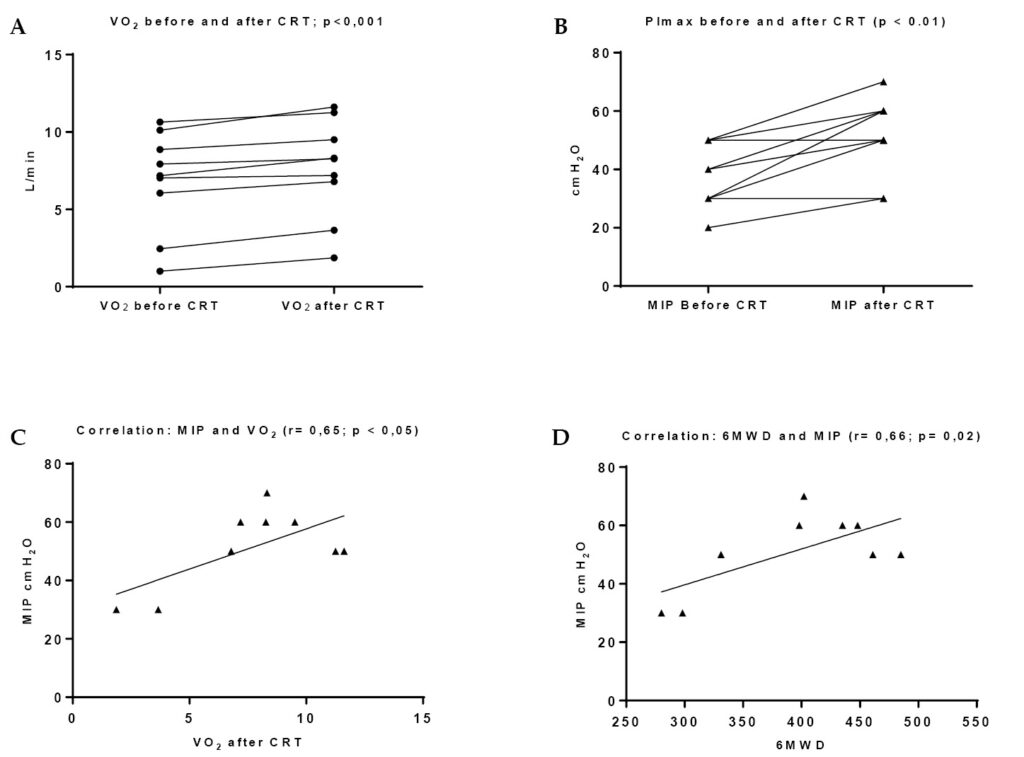International Journal of Cardiovascular Sciences. 14/abr/2022;35(5):690-5.
Effects of Cardiac Resynchronization Therapy on a Six-minute Walk Test, Maximal Inspiratory Pressure and Peak Expiratory Flow in Patients with Heart Failure: A Longitudinal Study
Abstract
Background:
Cardiac resynchronization therapy (CRT) is an effective treatment for patients with heart failure.
Objective:
To evaluate the response of CRT in maximal inspiratory pressure (MIP), peak expiratory flow (PEF), and exercise tolerance as determined by the six-minute walk test (6MWT) in patients with HF.
Methods:
This study used the 6MWT and Manovacuometer to assess functional capacity in relation to activities of daily living, in which fatigue and dyspnea are common.
Results:
After six months of CRT, this study identified improvements in the 6MWT, p<0.05; MIP, p=0.01; and PEF, p=0.03.
Conclusion:
After CRT, this study showed a significant improvement in MIP, PEF, and exercise tolerance. However, further studies are warranted to demonstrate the relevance of these findings.
Palavras-chave: Heart Failure; Cardiac Resynchronization Therapy; Walk Test; Maximal Inspiratory Pressures
665

